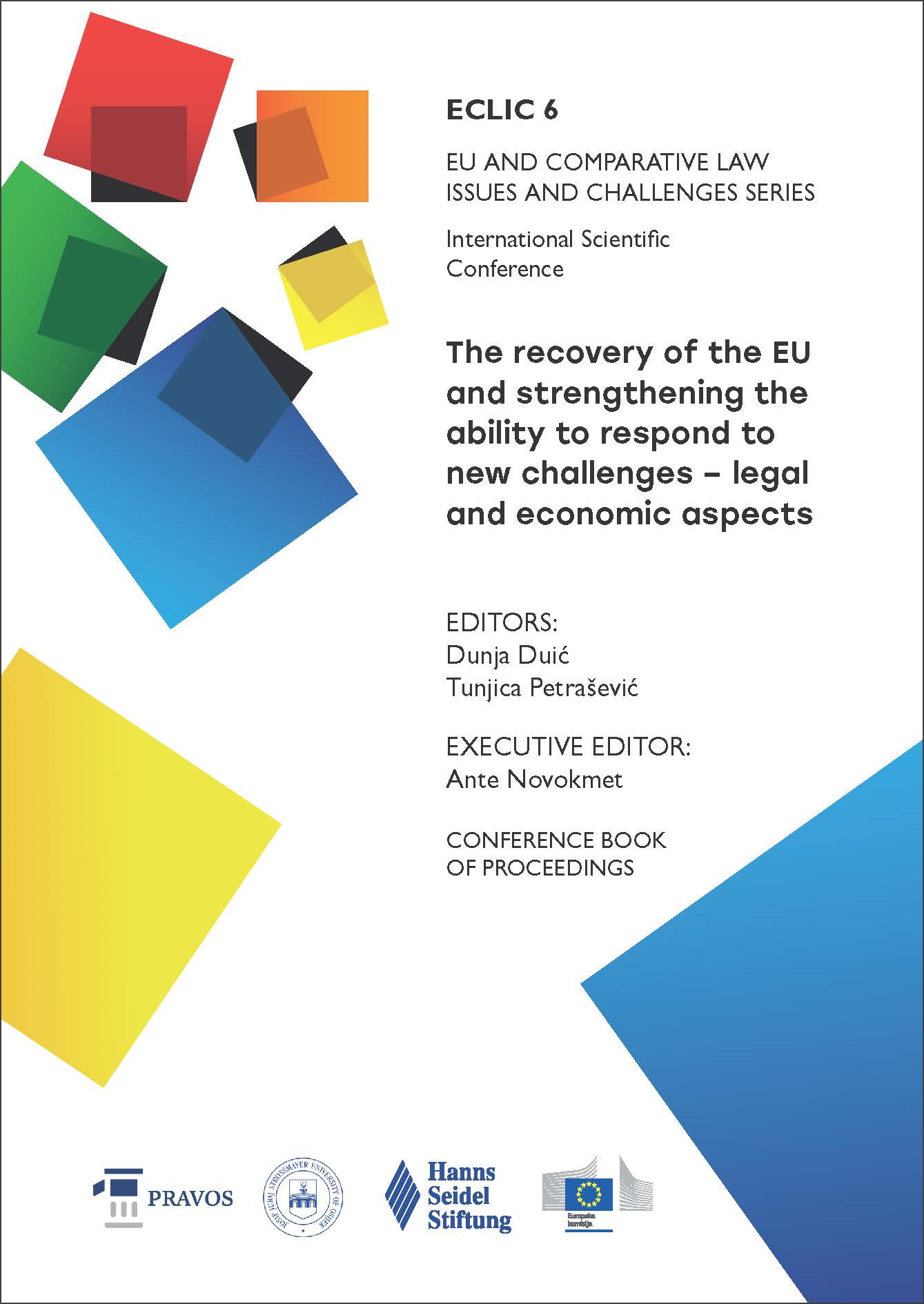STRENGTHENING THE ACTIVITIES OF YOUTH ASSOCIATIONS IN THE EUROPEAN ENVIRONMENT
CERTAIN LEGAL AND SOCIAL MATTERS
DOI:
https://doi.org/10.25234/eclic/22438Abstract
In the previous ten years in the EU, the youth have become one of the priority groups that is being strengthened for more intensive involvement in the life and development of society. Research has shown that the youth are quite uninterested in getting involved in political and social activities that contribute to the development of the community and society. The still current pandemic caused by Coronavirus Disease (COVID-19) has further “pushed” the youth into the virtual world because they are now forced to conduct their daily activities (for example, schooling, additional education) in an online environment. The youth, otherwise avid fans of technological achievements, are now trapped in their homes with computers, smartphones and other technological aids, thus losing direct contact with their peers and adults, remaining deprived of some of the socializing effects of the teaching process and are at risk of complete alienation. EU Youth Strategy 2019-2027 addresses youth organizations, as one of the key actors that strengthen the competencies of the youth and promote their social inclusion. Youth associations and associations for the youth, in addition to providing various services and programs for the youth, strengthen empathy among the youth, raise awareness of the youth on the needs of society and, through the development of additional competencies, empower them to actively participate in community life. This paper presents the results of the part of the research created within the Youth Activation Network project. The research was conducted using the focus group method, where the respondents were representatives of youth associations and associations for the youth from entire Croatia. Research questions were focused on trying to identify and differentiate youth associations and associations for the youth from other associations, ways to activate and involve the youth in the work of associations, and assess the current legal framework of associations. The results obtained from the implementation of focus groups were transcribed, processed in Dedoose computer program and presented in the paper according to main research issues. For results analysis, content analysis method was used, as well as comparison method and contrast method. The results of the research show that it is necessary to legally define work with the youth so that it can be used as one of the distinguishing criteria of youth associations and associations for the youth. Associations involve the youth as volunteers, users and service providers, and empower and motivate them to further engage in social activities. The biggest problems pointed out by the representatives of associations are related to the ways of financing the work of the associations. Although some respondents pointed out certain shortcomings, research results indicate that the existing legal framework for the work of the associations is satisfactory, while its amendments could further complicate the work of youth associations. The revocation of the complex consequences of the pandemic requires the active involvement of all factors in society, where active and engaged, socially responsible and empathetic youth can be the bearers of change and improvement.
Downloads
Published
How to Cite
Issue
Section
License
Copyright (c) 2022 Danijela Romić, Jelena Dujmović Bocka

This work is licensed under a Creative Commons Attribution-NonCommercial 4.0 International License.
Authors retain the copyright on the papers published in the Journal, but grant the right of first publication to the Journal. Papers accepted for publication or already published in ECLIC of the Faculty of Law in Osijek may be published by the author(s) in other publications only with proper notice of its previous publication in ECLIC.


